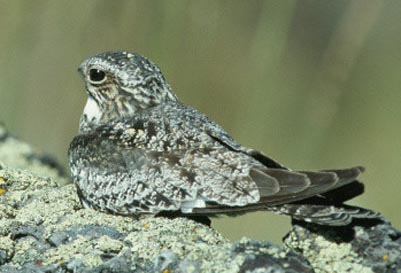Aerial insectivores
|
Whip-poor-will, Common Nighthawk, Olive-sided Flycatcher, Alder Flycatcher, Willow Flycatcher, Least Flycatcher, Yellow-bellied Flycatcher, Eastern Phoebe, Great Crested Flycatcher, Bank Swallow, Barn Swallow, Tree Swallow, Northern Rough-winged Swallow, Cliff Swallow, Chimney Swift, Eastern Wood-pewee, Eastern Kingbird, Purple Martin, Cedar Waxwing
|
Aerial insectivores feed primarily on flying insects. This group has declined steeply throughout eastern North America in recent decades, and results from the Atlas suggest this trend is no different within Vermont.
- Thirteen of 18 species showed a net loss of occupied blocks, with an average loss of 35 percent of blocks.
- In contrast, only 4 aerial insectivores gained blocks, with an average increase of 26 percent. Two of these species, Willow and Alder flycatchers, showed substantial increase in block occupancy due to northward range expansions.
- Six species showed virtually no change in their distributions between atlases (e.g., Cedar Waxwing, Eastern Phoebe, Least Flycatcher).
- Common Nighthawk and Whip-poor-will showed most dramatic declines (91 and 77%, respectively).
- Bank and Cliff swallows, Purple Martin, and Olive-sided Flycatcher found in 39 to 65% fewer Priority 1 blocks.
- Yellow-bellied Flycatcher and Chimney Swift occurred in 38 and 26% fewer Priority 1 blocks, respectively.
- Declines in aerial insectivore populations have been most severe in the north and east, and began in the 1970s (Nebel et al. 2010), suggesting that contamination of the prey base may be a factor contributing to declines. This suggests that atmospheric deposition of mercury or other industrial-based contaminants, known to be particularly problematic in the region, may be compromising health or productivity of insectivorous birds.
- Species in this group that migrate to South America have declined to a greater extent than have species that migrate over shorter distances (Nebel et al. 2010).
- Loss of breeding habitat is another potential reason for declines of some species







